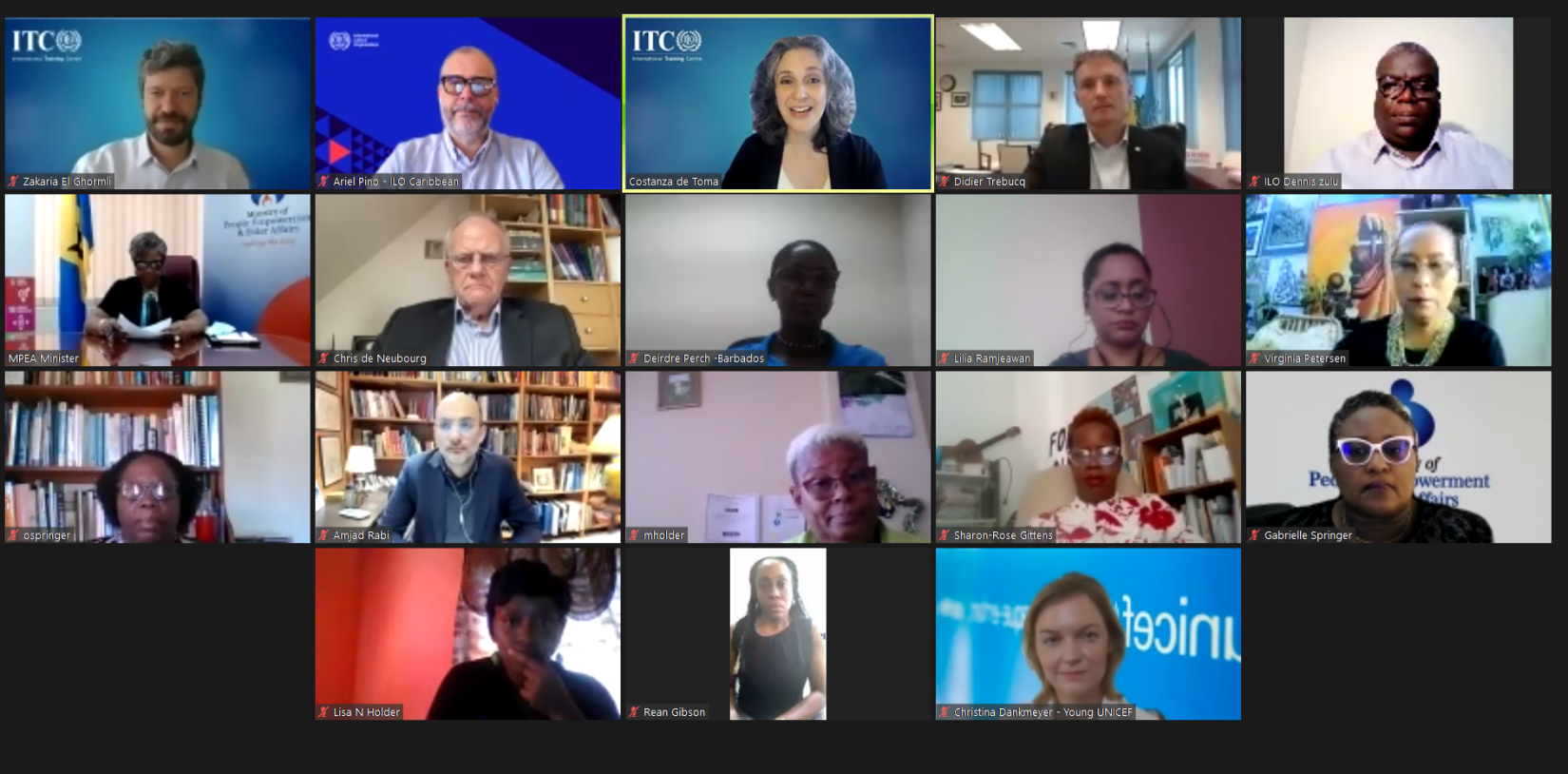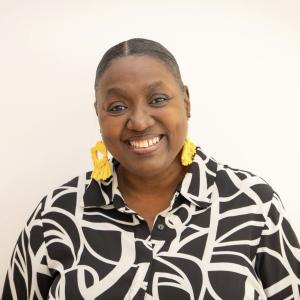Barbados strengthens capacity for social protection reform through UN Joint SDG Fund / ILO training
01 June 2021
- Policymakers enhance understanding and skills during the intensive specialized course

Social protection policymakers and practitioners in Barbados are now better equipped to develop and implement more comprehensive, inclusive, and adaptive measures after completing an E-Training Programme in Social Protection Policy and Quantitative Techniques.
Offered by the UN SDG Fund Joint Programme in Universal Adaptive Social Protection and implementing partner International Labour Organization (ILO), in collaboration with the ILO International Training Centre, the eight-month course was customized to meet the needs of the country following a request for support from the Government as it prepares to reform its social protection systems. The virtual learning journey covered a range of topics including finance, governance and quantitative techniques for assessing impact – all taught by experts from around the world.
At a virtual closing ceremony held on 26 May 2021, dignitaries, course instructors and participants gathered to reflect on the significance of the training for Barbados and the region.
“Caribbean social protection systems are evolving and now being recognized as central to the region’s overall development. They are even being considered a pre-requisite for achieving the SDGs by becoming more shock responsive and protecting the most vulnerable,” said Mr. Didier Trebucq, Resident Coordinator, United Nations Office for Barbados and the Eastern Caribbean in his opening remarks.
The Joint Programme, which provided financial support for the course, was initially intended to help countries like Barbados prepare for future shocks, and accelerate progress towards the achievement of the SDGs. However, Mr. Trebucq noted that multiple crises currently facing the region, including COVID-19, have resulted in major social and economic dislocation, particularly among those without access to social safety nets. He acknowledged, however, that adversity had opened the door to necessary transformational change, such as the redesigning of Barbados' social protection system towards one that is more comprehensive and responsive to the needs of vulnerable persons and groups.
Mr. Dennis Zulu, Director of the ILO Decent Work Team and Office for the Caribbean, in addressing participants and well-wishers noted “It is in times as we are living now that we all realize the importance of investing in social protection and the people who work on it. The pandemic has made evident weaknesses of social protection systems; in their design, financing and administration.”
“Social protection is a human right and the most powerful public tool to protect people against the risks of poverty and vulnerability. We have enough evidence to say that social protection also empowers people, supports businesses staying afloat and makes societies more inclusive, cohesive and resilient,” he continued.
Ms. Cynthia Y. Forde, Minister of People Empowerment and Elder Affairs for Barbados also attended the event and commended the training as a noteworthy partnership between the Government and UN agencies.
“We are not operating in silos but in synergies. This event is indicative of much that embodies the decades of collaboration between the Government, the people of Barbados and the United Nations," said Minister Forde. “The facilitating of this training is timely as Barbados transitions from mainly providing a social safety network focusing on reactive social care and social assistance interventions, to a comprehensive and robust social protection system, that recognizes and encourages proactive approaches.”
Concluding the ceremony and speaking on behalf of course participants, Ms. Deidre Perch, Ministry of People Empowerment and Elder Affairs of Barbados lauded the programme. “The course came at an opportune time from the perspective that taking a look at shock-responsive social protection measures, public financing, emerging technology, impact assessments and various policy instruments brought lots of focus to our national response to COVID-19. This indeed enlightened how we can and should prepare for future shocks.”
Find out more about the Joint SDG Fund at: https://jointsdgfund.org/where-we-work/mco-barbados

Carol A. Gaskin
In her capacity, she leads communication and advocacy efforts for the UN Resident Coordinator's Office, overseeing operations in 10 Eastern Caribbean countries. Additionally, she chairs the UN Communications Group, fostering collaboration among communicators from 18 agencies.
Carol's expertise lies in developing communication strategies aligned with the Sustainable Development Goals and the 2030 Agenda. She excels in storytelling, utilizing various channels to amplify the UN's message effectively.
Her achievements include coordinating impactful events such as the "UN in the City" SDG exhibition and spearheading initiatives like the introduction of the Caribbean's first SDG-branded electric bus. Notably, Carol has received recognition for her outstanding work, including the Best Annual Results Report for Latin America and the Caribbean in 2023.
Her work extends to humanitarian efforts, notably providing coverage during natural disasters like the La Soufriere eruption.
With a proven track record of success and dedication to advancing global priorities, Carol A. Gaskin is a respected figure in the field of international development and strategic communication.


